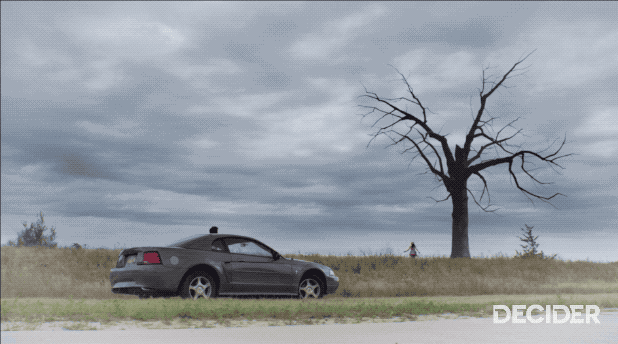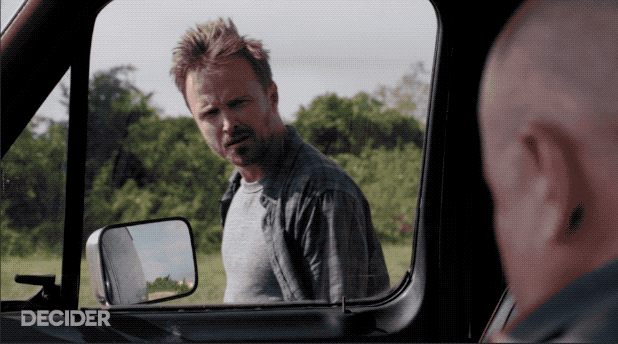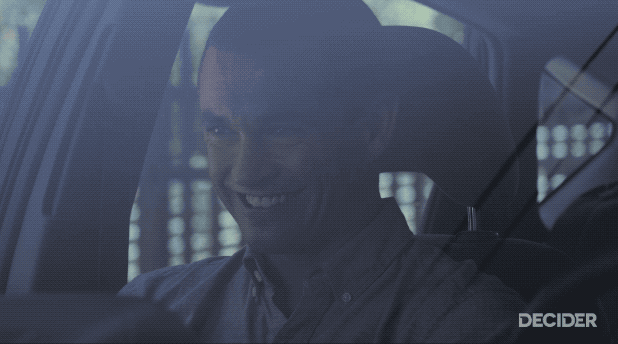We open with Johnny Cash on the soundtrack, as Mike “Wags” Wagner, the most Billions character on Billions, pours his heart out to his liege lord Bobby Axelrod and getting screamed at in response. No, wait—a “48 HOURS EARLIER” chyron reveals that we’re opening, with Johnny Cash on the soundtrack, in South Korea, where some poor schmoe involved in the manufacture of some obviously faulty smartphone takes a header out his hotel window, cutting off the music and setting off a soft “thud” and the sounds of screeching cars and screaming pedestrians below. We cut to Mafee, one of Axe Captial’s mid-rung hedgebros, running headlong into Bobby’s office only to find him absent. We cut to where Bobby is: at a racetrack with his kid and Frenchy from Goodfellas, where he’s tring to get a line on the locale of an upstate New York casino that’s in the works until word about the smartphone debacle reaches him. And from there, it really is off to the races.
“Currency,” the fifth episode of Billions’ shockingly good second season, is as ruthlessly efficient a storytelling machine as its predecessors. There’s not a plot beat that doesn’t reveal character, and there’s not a character revelation that doesn’t advance the plot. Guest stars—from the aforementioned Mike “Frenchy” Starr, to Dennis Boutsikaris, Danny Strong, and Jerry O’Connell as recurring rival hedge fund gurus turned potential allies, to Ritchie Coster of True Detective Season Two doing a sort of Mayor Chessani redux as a gambling-industry hotshot, to Mad Men villain Allan “Lou Avery” Havey as the boss of Christopher Denham’s superlative rat-squad investigator Oliver Dake—shine. Leading players get some of their strongest moments, from Bobby ripping up Lara’s ambitions out of pique to Chuck admitting to Wendy that he’s always felt like she was out of his league—a confession she was utterly flummoxed to hear, which illustrates how strained their relationship really was. Jokes hit hard as well: cf. Bobby asking his hapless underling Mafee, who has a major tipoff but is afraid to divulge it, “Are you transmitting the details to me telepathically?”; Chuck asking his more competent subordinate Kate if she’s ever gone hunting and her replying “No—I’m black”; Chuck asking Go enthusiast Bryan Connerty if he takes a vow of celibacy to adhere to the game’s ancient roots and Bryan responding “No, that’s just the end result”; brash psychotherapist Dr. Gus barking at his boss Bobby to “Let me into that kitchen!”
All of this is in service to some of the tightest plotting on television.
Billions is so good right now. I reviewed last night’s super-taut episode for the New York Observer. Pay special attention to the structural sharp left turn it makes near the end of the episode — that’s damn strong writing.




